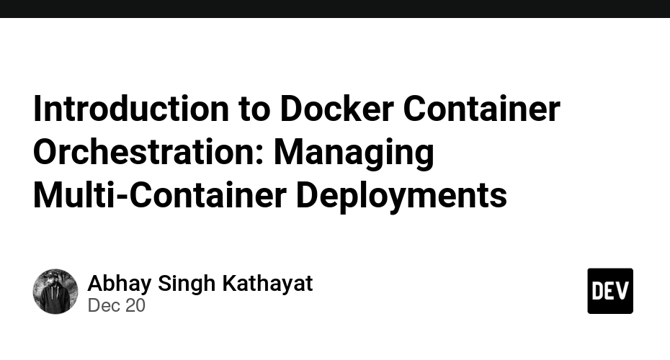Dev
5d
106

Image Credit: Dev
Introduction to Docker Container Orchestration: Managing Multi-Container Deployments
- Container orchestration refers to the management and coordination of multiple containers across a cluster.
- Docker itself doesn't have built-in orchestration capabilities, but it integrates seamlessly with various container orchestration tools that help manage multi-container deployments at scale.
- The most popular container orchestration tools are Docker Swarm and Kubernetes.
- Clusters are a group of machines that work together to run containerized applications. Nodes are individual machines within a cluster.
- Services are a definition of how a container should run in a cluster. Tasks are instances of containers running in a cluster.
- Docker Swarm is Docker's native container orchestration tool.
- Kubernetes is an open-source container orchestration platform that is highly scalable, fault-tolerant, and extensible.
- Orchestration tools automate tasks like deployment, scaling, and load balancing, reducing the manual effort required to manage containers.
- Whether you choose Docker Swarm for simplicity and integration with Docker or Kubernetes for advanced features and flexibility, both tools offer powerful capabilities to manage and automate container deployments.
- Container orchestration is crucial for managing complex applications that require multiple containers and scalability.
Read Full Article
6 Likes
For uninterrupted reading, download the app